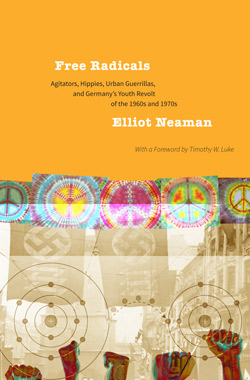“The spectacular Baader escape and the RAF media campaign against the West German state now caught the attention of the Stasi. Wanted posters advertising a reward of 10,000 DM with Meinhof’s photo were pasted ubiquitously in public spaces all across Western Germany. In the early afternoon of August 17, Meinhof surfaced in East Berlin wearing dark sunglasses, knocking at the door of the FDJ headquarters. She asked to be put in touch with the Stasi and mentioned Werner Lamberz and Horst Schumann, two functionaries she had known from an earlier meeting with the FDJ. She viewed East Germany as a promising base from which to launch attacks on the Federal Republic, or at least as a safe haven for when her troop came under surveillance pressure. At first, the Stasi decided not to take any risks with this unknown crowd, but Erich Mielke, longtime head of the Stasi, changed his mind, and on August 20, 1970, orders were given that Meinhof be allowed access to East Germany ‘when she wishes.’ As we have seen repeatedly, the Stasi always played with the idea of using the APO and the student rebellion as a weapon in the fight to destabilize West Germany, and this opportunity looked too promising to ignore…”
|
Elliot Neaman’s Free Radicals: Agitators, Hippies, Urban Guerrillas and Germany’s Youth Revolt of the 1960s and 1970s is now available for purchase in our online store. Save 20% on the list price by using the coupon code BOOKS20 during the checkout process. Also available in ebook format at Amazon.com (Kindle) and Barnes & Noble (NOOK). Free Radicals
Elliot Neaman’s Free Radicals presents a comprehensive panorama of the West German youth revolt in the 1960s, as well as its subsequent fragmentation and descent into terrorism in the 1970s. Neaman argues that the activists of the 1960s fundamentally misconstrued the nature of the young German republic, conflating it with earlier problematic German polities, and offered hazy world-shattering utopias to replace it based on artificial historical comparisons. The student radicals at first were swept along by liberalizing forces, but then made a decisive turn against reform in favor of an aggressive rejection of the existing order. |
||||
|
Telos Press Publishing · PO Box 811 · Candor, NY 13743 · Phone: 212-228-6479 Privacy Policy · Data Protection Copyright © 2024 Telos Press Publishing · All Rights Reserved |
||||








